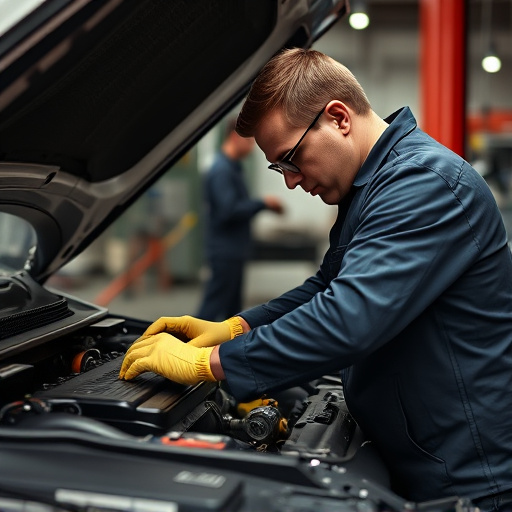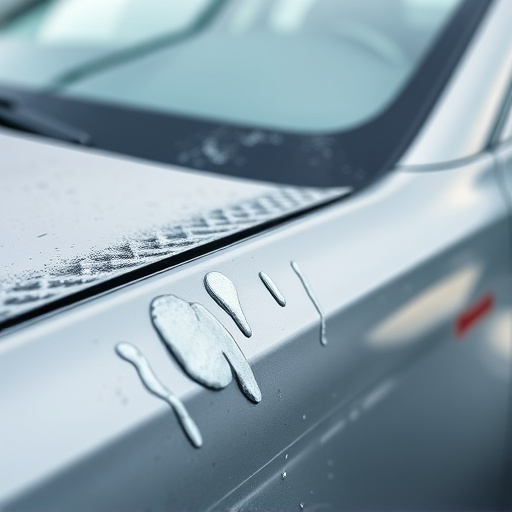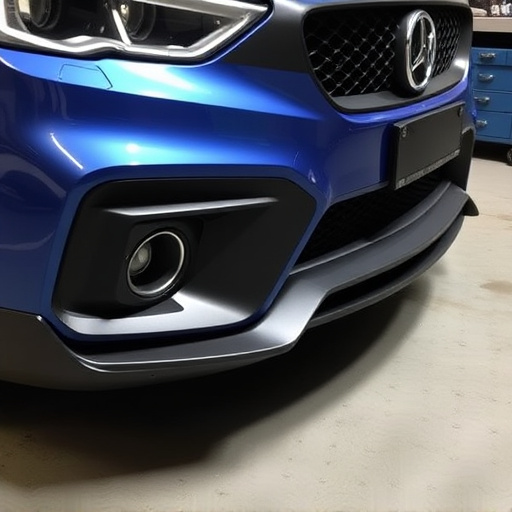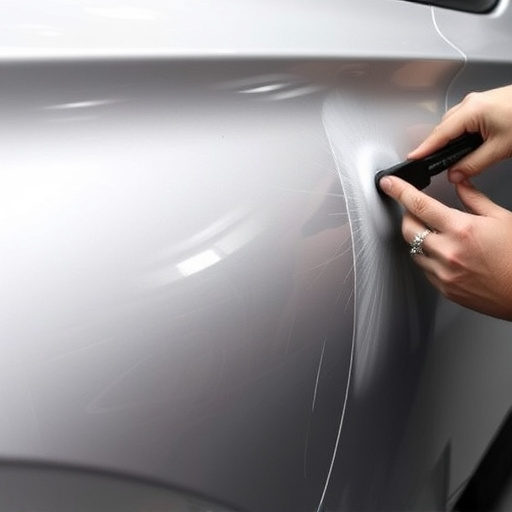Structural adhesive bonding is a game-changing technique replacing traditional joining methods in industries like automotive and aerospace with specialized adhesives for robust, lightweight bonds. Collision repair technicians benefit from faster repairs, improved durability, and reduced costs, while its versatility allows for reconstructing complex automotive components. Comprehensive training modules for technicians focus on fundamental adhesive principles, preparation techniques, and design considerations to ensure high-quality, safe bonding practices. Certified professionals stay updated through continuous education, ensuring top-tier results in auto body shops and beyond by leveraging their expertise in structural adhesive bonding techniques.
In today’s construction landscape, structural adhesive bonding offers a revolutionary approach to joining materials, enhancing structural integrity. This article delves into the essential training requirements for structural adhesive bonding technicians, ensuring optimal performance and safety. We explore key modules, certification processes, and continuous education, providing a comprehensive guide for those navigating this dynamic field. Understanding these aspects is crucial for maximizing the benefits of structural adhesive bonding in various industries.
- Understanding Structural Adhesive Bonding: Essentials and Benefits
- Competent Training Modules for Adhesive Bonding Technicians
- Certification, Safety, and Continuous Education for Optimal Performance
Understanding Structural Adhesive Bonding: Essentials and Benefits
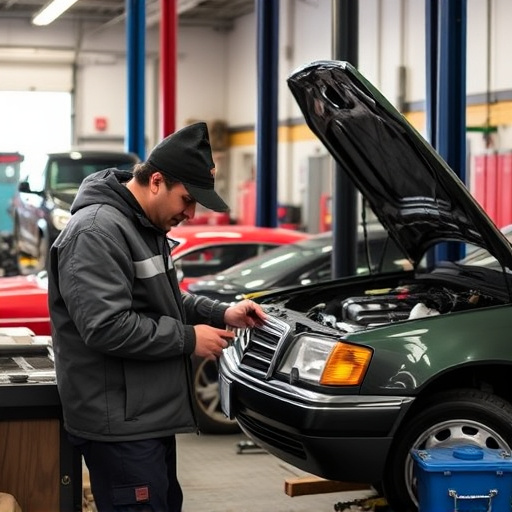
Structural adhesive bonding is a precise and powerful technique that has transformed various industries, from automotive to aerospace. It involves using specialized adhesives to create strong, long-lasting bonds between different materials, offering significant advantages over traditional joining methods. This modern approach ensures exceptional structural integrity by eliminating the need for rivets, welds, or bolts in certain applications, leading to lighter components and improved overall performance.
For technicians working in collision repair centers or providing automotive repair services, understanding structural adhesive bonding is essential. It allows them to offer advanced solutions, ensuring faster repair times, enhanced durability, and reduced part replacement costs. This method’s versatility enables the reconstruction of complex structures with precision, making it a game-changer in the industry, especially when dealing with intricate automotive components and structures.
Competent Training Modules for Adhesive Bonding Technicians
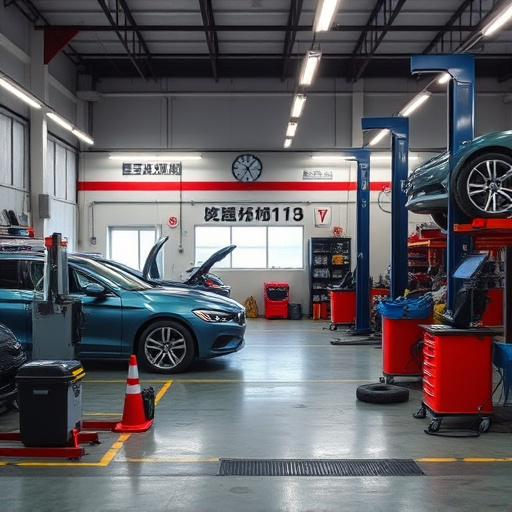
For Structural Adhesive Bonding Technicians, competent training modules are a cornerstone for ensuring top-notch bonding quality and safety in various industries, including automotive. These modules should cover a comprehensive range of topics to equip technicians with the knowledge and skills necessary for successful structural adhesive applications. Starting with fundamental principles of adhesives, such as types, properties, and curing mechanisms, technicians learn how these substances interact with different materials, crucial for understanding compatibility in real-world scenarios like bumper repair or complex automotive body shop projects.
Hands-on training on preparation techniques, surface treatment, and application methods is equally vital. Technicians must master cleaning procedures, substrate conditioning, and precise adhesive dispensing to achieve strong, lasting bonds. Moreover, modules should delve into design considerations for structural integrity, joint geometry, and load distribution, enabling technicians to apply their expertise in a variety of settings beyond mere car repair services.
Certification, Safety, and Continuous Education for Optimal Performance
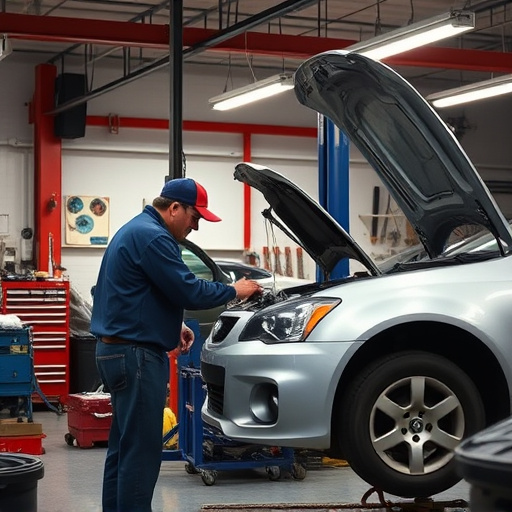
For optimal performance in structural adhesive bonding, technicians must maintain rigorous standards in certification and safety protocols. Achieving recognized industry certifications, such as those offered by professional organizations or manufacturers, ensures that technicians possess the necessary knowledge and skills to handle complex adhesive applications. These certifications often involve comprehensive training programs covering topics like material properties, application techniques, and cure processes specific to structural adhesive bonding.
Continuous education is equally vital in this dynamic field. Technicians should stay updated with advancements in adhesive technology, new product formulations, and industry best practices. Regular workshops, webinars, or online courses offered by manufacturers or specialized training institutions can help auto body shop technicians enhance their expertise. This commitment to ongoing learning ensures they remain at the forefront of structural adhesive bonding techniques, delivering top-quality results for applications like those found in the automotive body shop and beyond.
Structural adhesive bonding is a game-changer in modern manufacturing, offering enhanced strength and durability. To harness its full potential, competent technicians are essential. Through tailored training modules, certification programs, and continuous education, professionals can master this advanced technique, ensuring optimal performance and safety in every bond. Investing in these measures is key to revolutionizing industrial processes with structural adhesive bonding.




